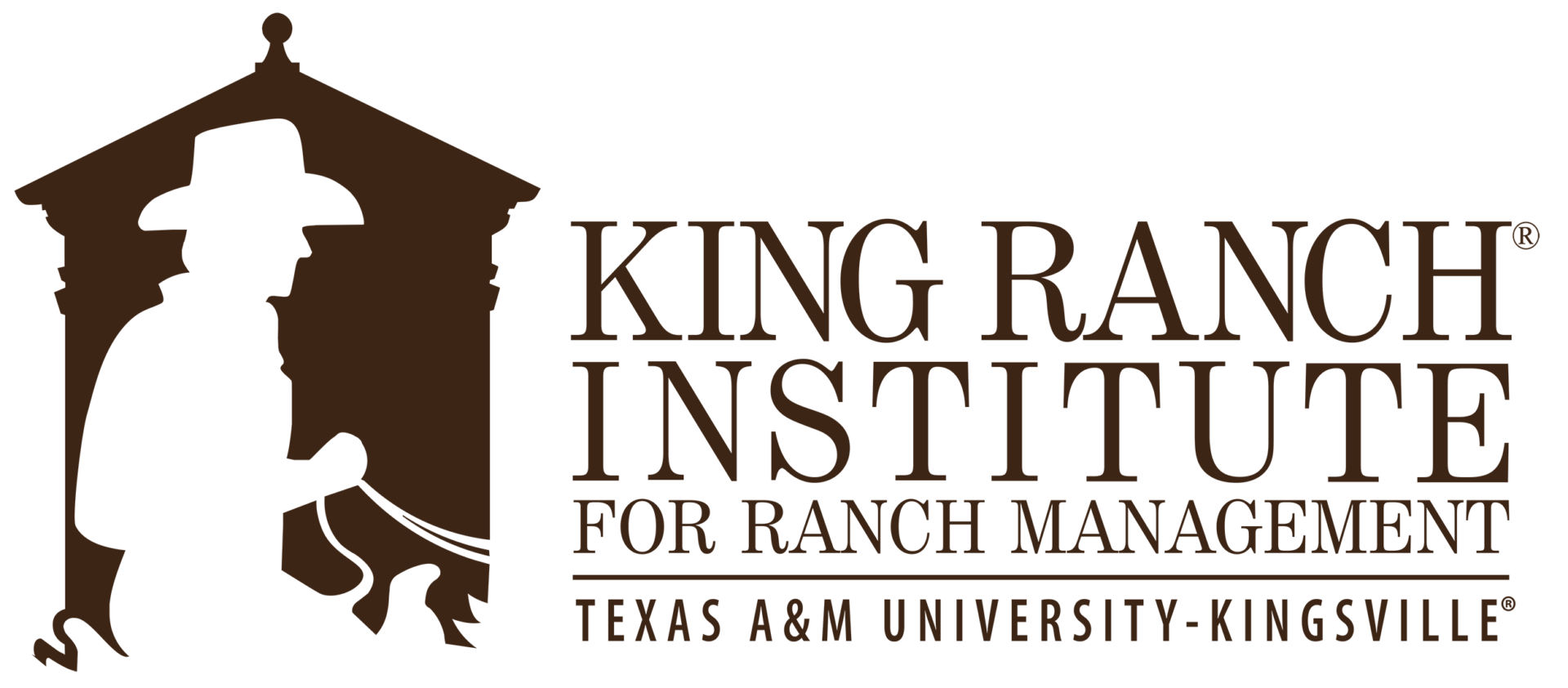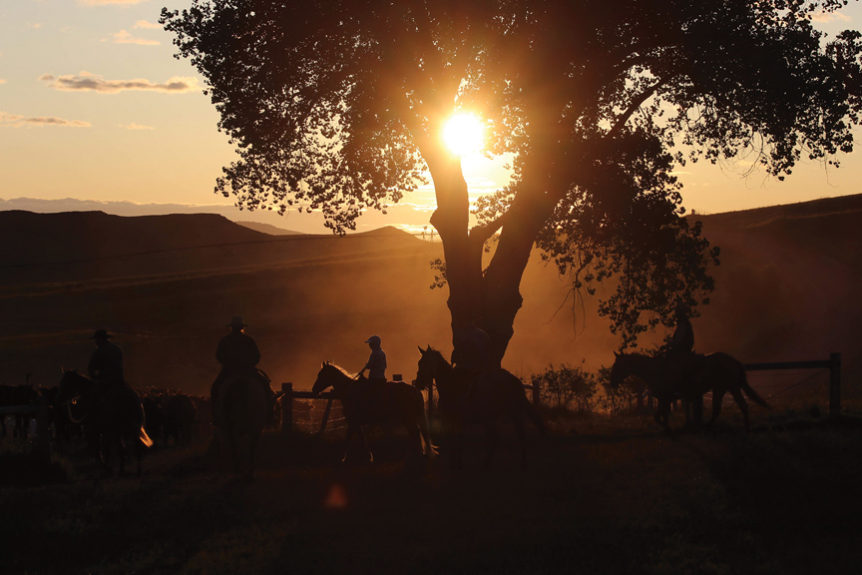The King Ranch® Institute for Ranch Management (KRIRM) is excited to welcome three new members to our management council in 2020. The management council is a group of men and women who use their vast experiences in the ranching industry to contribute to the wise direction of the KRIRM master’s degree, outreach, and newly established research program. Here, we recognize the three newest members of the council, Hughes Abell, Jim McAdams, and Jason Van Tassell, who will join 11 other industry professionals on the council.
“Our programs are all about working smarter but having a foundation in practical experiences,” states King Ranch family member and chair of the KRIRM management council Jamey Clement, Jr. “These three cowmen have run wide-ranging and diverse operations, and I believe their advice and counsel will improve our programs and avoid mission drift.”
That experience lends to each new member bringing a unique set of skills and knowledge to help lead the program into the future of the ever-changing ranching industry.
Hughes Abell
A familiar face to those involved in ranching in the Southwest, Hughes Abell will join the management council bringing along nearly 50 years of experience in ranching and leadership roles.Abell is the founder and General Partner of his family operation, Llano Partners, Ltd., with ranching, farming, and cattle feeding operations spanning Texas, New Mexico, and Florida. In addition, he actively manages private investments in oil and gas, timber, and commercial real estate.
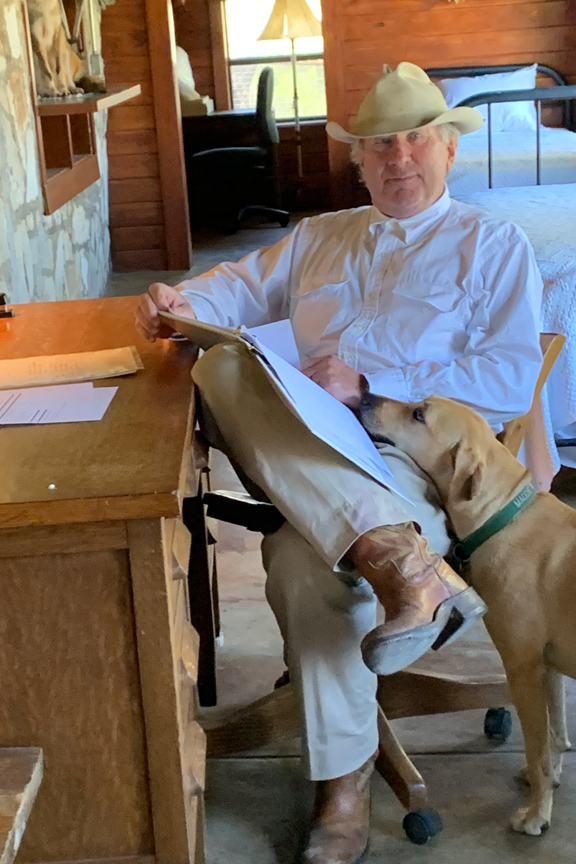
“All of us who serve on the management council bring varied experience to fulfilling the mission of the unique venture that is the King Ranch® Institute for Ranch Management. Our company’s particular focus is on cow-calf operations…each with a long range emphasis on operational efficiency, long range planning, and responsible care of our natural resources,” explains Abell.
His résumé of industry roles and appointments includes currently serving as First Vice President of the Texas & Southwestern Cattle Raisers Association (TSCRA) and as a director of the Texas Livestock Marketing Association, National Finance Credit Corp, and National Cattlemen’s Beef Association (NCBA). A 1972 graduate of Vanderbilt University, Abell is also a former member of the Cattlemen’s Beef Promotion and Research Board.
“The most rewarding aspect of involvement in the industry has been with the TSCRA. This includes serving as Vice Chair and then Chairman of Natural Resources Committee, participating in legislative work on water issues, and most recently on reform of eminent domain laws,” says Abell.
While reflecting on his roles and impact to the industry on state, national, and international levels, Abell cites the time as a great educational privilege and opportunity to serve the industry, but with an understanding that it is not all about his accomplishments.
“So many individuals who have had similar opportunities to contribute have made us all more successful as individuals and an industry, and made our country the world leader in agriculture,” he says.
A native of Monroe, La., Abell now calls Texas home. He and his wife, Betsy, live in Austin and are the parents of two grown children who are involved in the family ranching operation.
“I hope to share our experience with the management council, and learn from others and their diverse experience in varied fields, to provide meaningful direction to the future of participants in the KRIRM program,” explains Abell.
Jim McAdams
A leader in Texas and U.S. agriculture for 30 years, Jim McAdams recognizes the significance in serving on the KRIRM management council during some of the most challenging and ever-changing times the industry has ever faced. McAdams, setting out early in his career with a desire to be nothing else but a rancher, looks forward to impacting the future of the industry that shaped his successes.
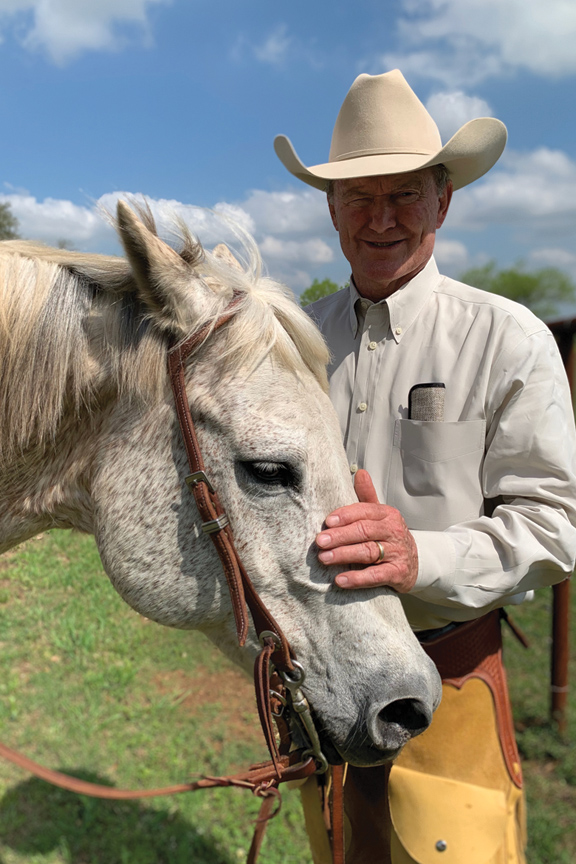
“It is not only my business but my life and I can’t think of a better way to ensure that this industry has a bright future than by serving as an advisor or mentor to those that want to make this business their life,” says McAdams.
Recalling the valuable knowledge and wisdom that his mentors imparted on him in the early days of his career, McAdams is grateful for the opportunity to share his experiences in the role of a mentor.
“I feel deep gratitude to the people that have mentored me. From them I learned the value of knowledge and wisdom. I learned these things because they were willing to share what they learned from their experiences,” he explains.
Today, McAdams runs his family ranch in the south eastern part of Texas and lives on a small ranch in the San Antonio area with his wife, Molly. After he graduated from Texas A&M University in 1972, he became the manager at McAdams Cattle Company, where he worked until 1990. During the next 20 years, Jim was an owner and partner on several ranches in Walker County. He later became COO of the Spade Ranch in West Texas, a ranch with 8,000 cows, sheep, horses, and an extensive commercial hunting enterprise.
McAdams has provided critical and valuable leadership in the industry through his involvement in many organizations, including serving on the board of NCBA for 15 years and as president in 2005, and serving for CattleFax as a board member and president. McAdams also worked with the Department of Agricultural Economics at Texas A&M to develop the Standard Performance Analysis (SPA) program, a standardized finance, marketing, and production performance measuring system for the beef cattle industry.
“I believe I have learned more and benefitted more from serving than in any other endeavors, including my work and my formal education because of the people it has enabled me to associate with,” says McAdams.
Through managing the large ranching operation at Spade Ranch to his role as partner in three feedlots, running stockers across the western United States, and managing five different registered breeds of cattle, McAdams feels that this involvement will be beneficial to the KRIRM program and students.
“My life experiences have shaped how I think, how I learn and how I make decisions. I hope to contribute to the program by stimulating its participants in thinking and learning and using those skills effectively,” he says.
McAdams and his wife, Molly, reside near Seguin, Texas, with their son John Kohl. Their son, Will ’04, Corps Commander 2003-2004, lives in Austin.
Jason Van Tassell
The third new member that KRIRM welcomes to the council may have the most unique perspective of the program as a 2012 graduate of KRIRM. Now, eight years later, Jason Van Tassell will have the chance to guide the decisions for a program that he says changed his life.
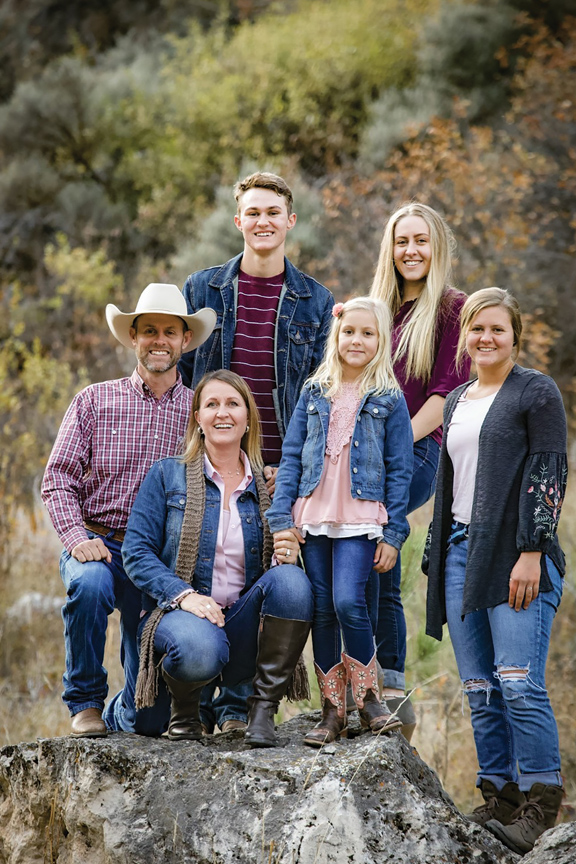
“It is very exciting for me to be given the opportunity to serve on the management council for KRIRM,” explains Van Tassell. “The Institute has been life-changing for me and my family, and has given us opportunities beyond the expectations we were considering before attending the program. This is truly an opportunity to give back to the Institute in appreciation for what it has given me.”
Van Tassell currently manages Sunlight Ranch, a ranching operation in North Eastern Wyoming and Southern Montana. The operation consists of cow-calf, stocker and farming enterprises with the ability of producing and backgrounding approximately 10,000 head of calves annually. Prior to coming into this role at Sunlight, Van Tassell was a Livestock Manager for the historic Parker Ranch in Hawaii. While in this role, he served on the Hawaii Cattleman’s Council and the Hawaii Cattle Producers Co-op. Jason and his wife, Laurie, have four children: Laney, Macey, Cache, and Texie.
Van Tassell says that he works closely with ranch ownership, unit managers, and employees as they strive to enhance the resources of the ranch and preserve the integrity and honesty that Sunlight Ranch was built upon.
Looking at this next role in his career, Van Tassell reflects back on how the industry shaped him. He believes this is a chance for him to pay it forward and continue the tradition of ranching.
“It reminds me of those who have gone before to clear the trail, lay the foundations, ask the difficult questions and set the standards for others to follow and build upon.”
